- Home
- About Us
- Products
-
Heat-Pump Dehumidifier DeAir
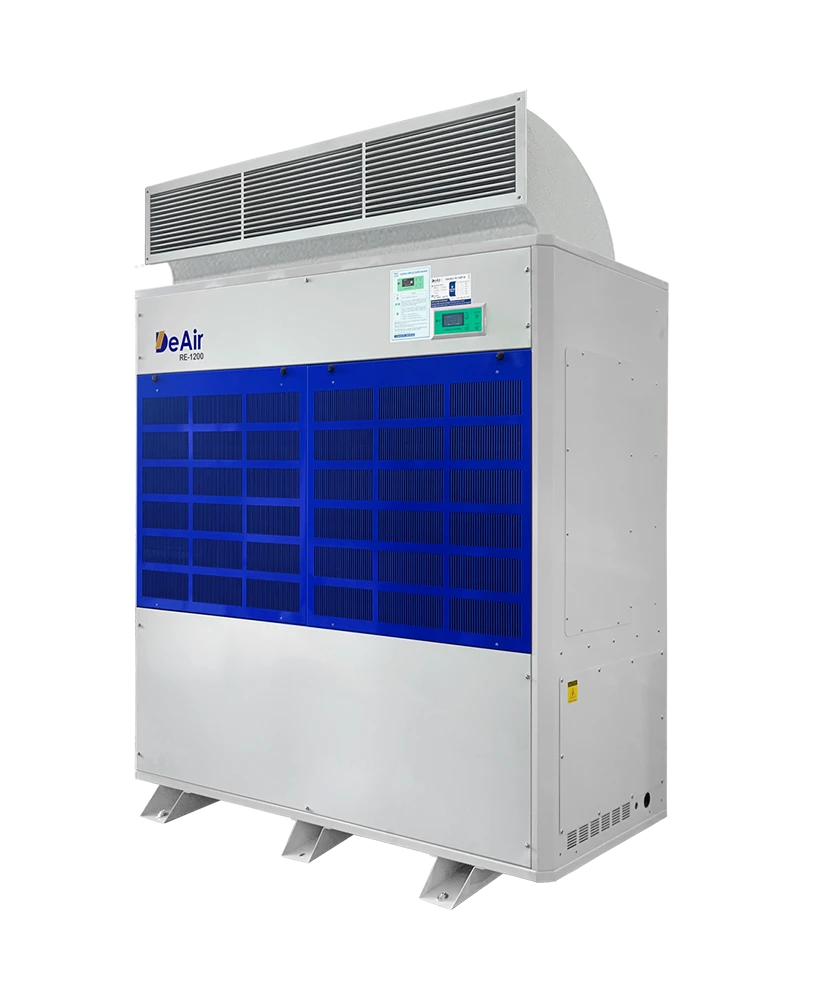 DeAir.RE
DeAir.RE -
Heat-Pump Dryer DeAir.RE-H
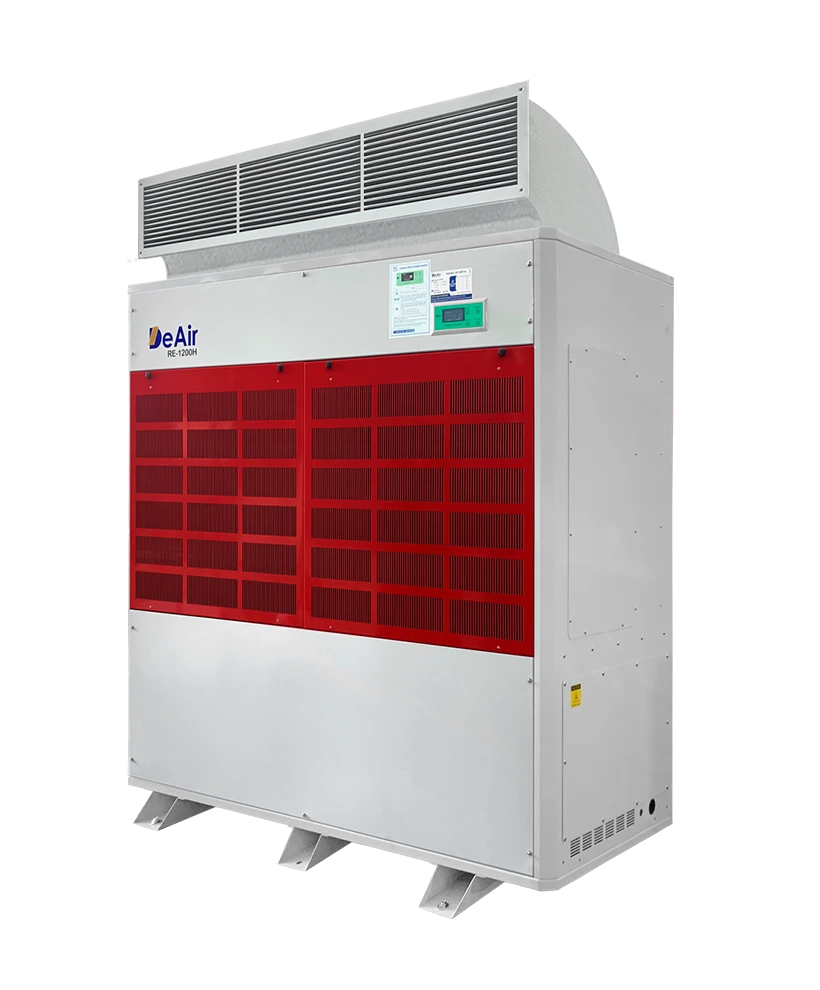 DeAir.RE-H
DeAir.RE-H -
Heat-Pump Stainless Steel Dehumidifier
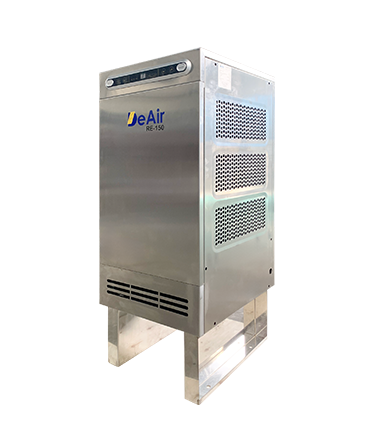 DeAir.RE-INOX
DeAir.RE-INOX -
Heat-Pump Isothermal Dehumidifier DeAir.CRE
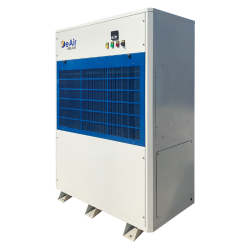 DeAir.CRE
DeAir.CRE -
Dezenno Dehumidifier
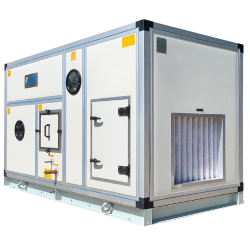 Dezenno
Dezenno -
Heat-Pump Ceiling Mounted Dehumidifier DeAir
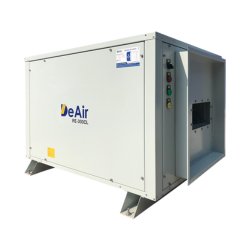 DeAir.RE-CL
DeAir.RE-CL -
Dehumidifier Olmas
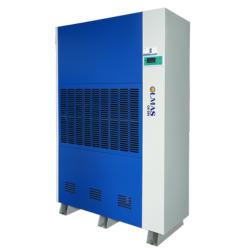 Olmas-OS
Olmas-OS -
Industrial Humidifier DeAir
 DeAir.HM
DeAir.HM -
Heat-Pump Dryer Daxwell
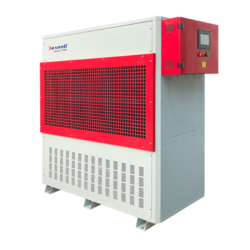 Daxwell
Daxwell -
Electric Duct Heater DeAir
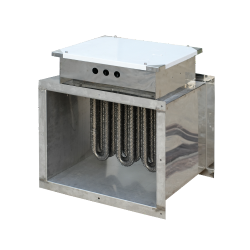 DeAir.Heat
DeAir.Heat -
Air Handling Unit Dezenno.MAX
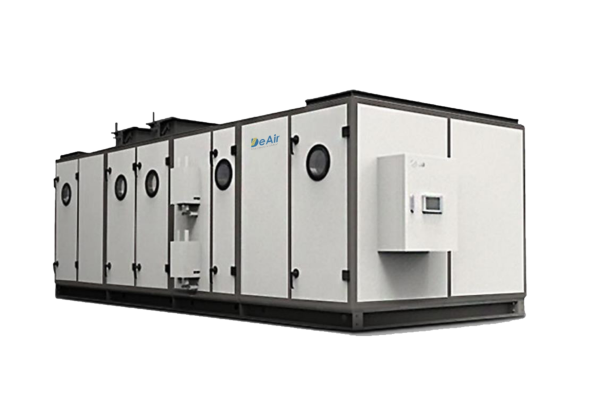 AHU
AHU
-
- Services
- Projects
- Warranty – Maintenance
- News
- Contact
Industrial Dehumidifiers: The Comprehensive A-Z Guide (2025 Update)
10/04/2025
High humidity in Vietnam is not just a matter of discomfort in daily life; it's a massive "hidden cost" in the industrial sector. It causes everything from damage to raw materials and degradation of finished products to safety incidents and adverse effects on worker health. An industrial dehumidifier is the foundational solution to thoroughly address this problem, ensuring stability and efficiency throughout the entire production process.
This article serves as a comprehensive A-Z guide for engineers, factory managers, and business owners to deeply understand industrial dehumidifiers: from their benefits, technologies, and applications to how to select the most suitable solution.

Table of Contents
- 1. What is an Industrial Dehumidifier?
- 2. Infographic: 5 Critical Benefits of Investing in an Industrial Dehumidifier
- 3. A Comparison of Common Industrial Dehumidification Technologies
- 4. Applications of Dehumidifiers in Key Industries
- 5. An A-Z Guide to Selecting the Right Industrial Dehumidifier
- 6. DeAir's Industrial Dehumidifier Lines: A Solution for Every Need
- 7. Frequently Asked Questions (FAQ)
1. What is an Industrial Dehumidifier?
An industrial dehumidifier is a specialized device designed to remove excess moisture from the air with high capacity and the ability to operate continuously 24/7 in harsh environments. Unlike residential models, they are built with durable materials and have capacities ranging from tens to thousands of liters per day, aimed at precise humidity control for large spaces such as factories, warehouses, hospitals, and laboratories.
2. Infographic: 5 Critical Benefits of Investing in an Industrial Dehumidifier
Investing in an industrial dehumidification system is not an expense, but a strategic investment that brings direct and sustainable benefits to a business.
🛡️
Protect Goods & Assets
Prevents rust on machinery, mold on finished products, and damage to electronic components.
⚙️
Ensure Production Quality
Maintains stable humidity for processes like drying, coating, film wrapping, and microchip manufacturing.
❤️🩹
Improve Worker Health
A dry environment prevents the growth of mold and bacteria, protecting workers' respiratory health.
⚡
Save Energy Costs
More efficient than using air conditioners for dehumidification. Heat-Pump technology offers superior savings.
🏆
Enhance Reputation
Ensures consistent product quality, meeting strict export standards for humidity and mold.
3. A Comparison of Common Industrial Dehumidification Technologies
The market currently features three main dehumidification technologies, each with its own advantages and disadvantages. Choosing the right one is crucial for both effectiveness and investment cost. According to ASHRAE (American Society of Heating, Refrigerating and Air-Conditioning Engineers), managing humidity is critically important in modern buildings and factories.
| Criteria | Refrigerant Condensing | Desiccant Rotor | Heat Pump |
|---|---|---|---|
| Principle | Cools air to condense water vapor. | Uses a silica gel rotor to absorb moisture. | Similar to condensing but reuses heat energy. |
| Pros | Low initial investment cost. | Works at very low humidity (<40%RH) and sub-zero temperatures. | Superior energy savings, highly efficient. |
| Cons | Performance drops at low temperatures (<15°C). | High investment and operating costs. | Higher initial cost than standard condensing units. |
| Best For | General warehouses, production areas with temperatures > 20°C. | Cold storage, battery manufacturing, pharmaceuticals. | Most industrial applications in Vietnam. |
4. Applications of Dehumidifiers in Key Industries
Different industries have unique humidity requirements. Here are some typical applications:
- Food Industry: Prevents caking of sugar and powders, maintains crispness of snacks and biscuits, and inhibits mold growth during production and storage. (Read more...)
- Pharmaceuticals: Meets strict GMP-WHO standards, protects tablets and powders, and ensures a sterile environment in cleanrooms and labs. (Read more...)
- Electronics: Prevents corrosion and oxidation of microcircuits and PCBs, and minimizes the risk of electrostatic discharge (ESD) damaging semiconductor components. (Read more...)
- Textiles & Footwear: Prevents mold on fabrics and leather, especially for export goods, and accelerates the drying process after dyeing and printing. (Read more...)
- Warehousing & Logistics: Protects a diverse range of goods—from wood and paper to metals and consumer products—from moisture damage. (Read more...)
5. An A-Z Guide to Selecting the Right Industrial Dehumidifier
Choosing the right dehumidifier is crucial for effectiveness and cost. Follow this 4-step process:
- Step 1: Define Your Requirements: What are the target humidity and temperature levels for your space? This is the most important factor.
- Step 2: Calculate Moisture Load & Capacity: The moisture load depends on many factors: space volume, building materials, number of personnel, door opening frequency, products inside, etc. This is a complex step that often requires expert consultation.
- Step 3: Choose the Right Technology: Based on your requirements, select the appropriate technology—condensing, rotor, or heat pump—using the comparison table above.
- Step 4: Consider Other Factors: Choose casing materials (steel vs. stainless steel), additional features (BMS connectivity, casters), brand, and after-sales policy.
Video: Overview of DeAir Industrial Dehumidifiers
6. DeAir's Industrial Dehumidifier Lines: A Solution for Every Need
DeAir is proud to be a reputable manufacturer in Vietnam with an ISO 9001:2015 certified quality management system, offering a diverse range of solutions for every need:
- Need energy savings for common applications? → The DeAir.RE series is the optimal choice.
- Operating in a high-temperature environment? → The DeAir.RE-H (Heat-Resistant) series.
- Need a solution for corrosive or hygienic environments? → The DeAir.RE-INOX series.
- Need to dehumidify without raising the temperature? → The DeAir.CRE (Isothermal) series.
- Need ultra-low humidity or sub-zero temperature operation? → The Dezenno (Rotor) series.
- Need to save floor space? → The DeAir.RE-CL (Ceiling-Mounted) series.
7. Frequently Asked Questions (FAQ)
1. Are the operating costs of an industrial dehumidifier high?
Operating costs depend on the technology. With DeAir's Heat-Pump series, energy costs can be reduced by up to 50-70% compared to using a standard condensing unit with an electric heater, making the long-term cost proposition much more efficient.
2. What is the average lifespan of a DeAir industrial dehumidifier?
With high-quality components and an ISO-standard manufacturing process, DeAir industrial dehumidifiers have a designed lifespan of over 10 years. However, the actual lifespan greatly depends on proper and regular preventive maintenance.
3. Does DeAir offer on-site surveys and capacity calculations?
Absolutely. This is a crucial part of our service. DeAir's experts will conduct an on-site survey to measure and accurately calculate the moisture load, then recommend the most suitable solution and capacity to ensure efficiency and avoid waste.
Get a Comprehensive Solution Consultation for Your Business
Don't let humidity affect your production. Contact DeAir's experts today for a consultation on the most effective and suitable industrial dehumidifier solution for your needs.
DEAIR JOINT STOCK COMPANY
Email: operation@deair.com.vn
Hotline: +84 933 628 660
Website: deair.com.vn
Sign up for news from DeAir
Related news






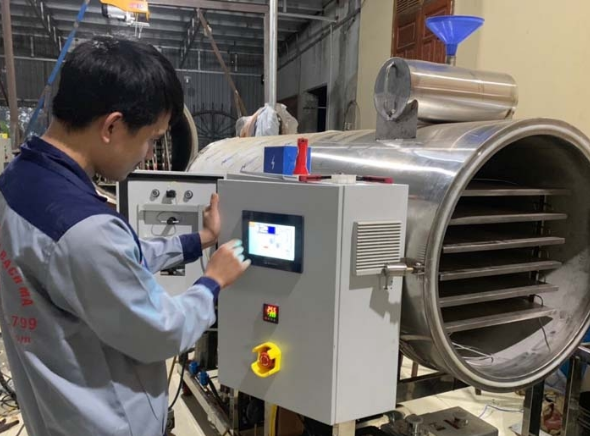



![[Case Study] DeAir Installs DeAir.De Rotor Humidity Control System for Pharmaceutical Plant in Binh Duong [Case Study] DeAir Installs DeAir.De Rotor Humidity Control System for Pharmaceutical Plant in Binh Duong](https://deair.com.vn/thumbs/news/2023_04/ban_giao_may_cho_duoc_bd/[270x153-cr]image1-1024x772.jpg__cv.webp)

![[Review & Guide] Olmas OS-300: The New Humidity Control "Warrior" for Medium to Large Warehouses [Review & Guide] Olmas OS-300: The New Humidity Control "Warrior" for Medium to Large Warehouses](https://deair.com.vn/thumbs/news/huong_dan_su_dung_may_olmas_21/[270x153-cr]vtm06440.png)